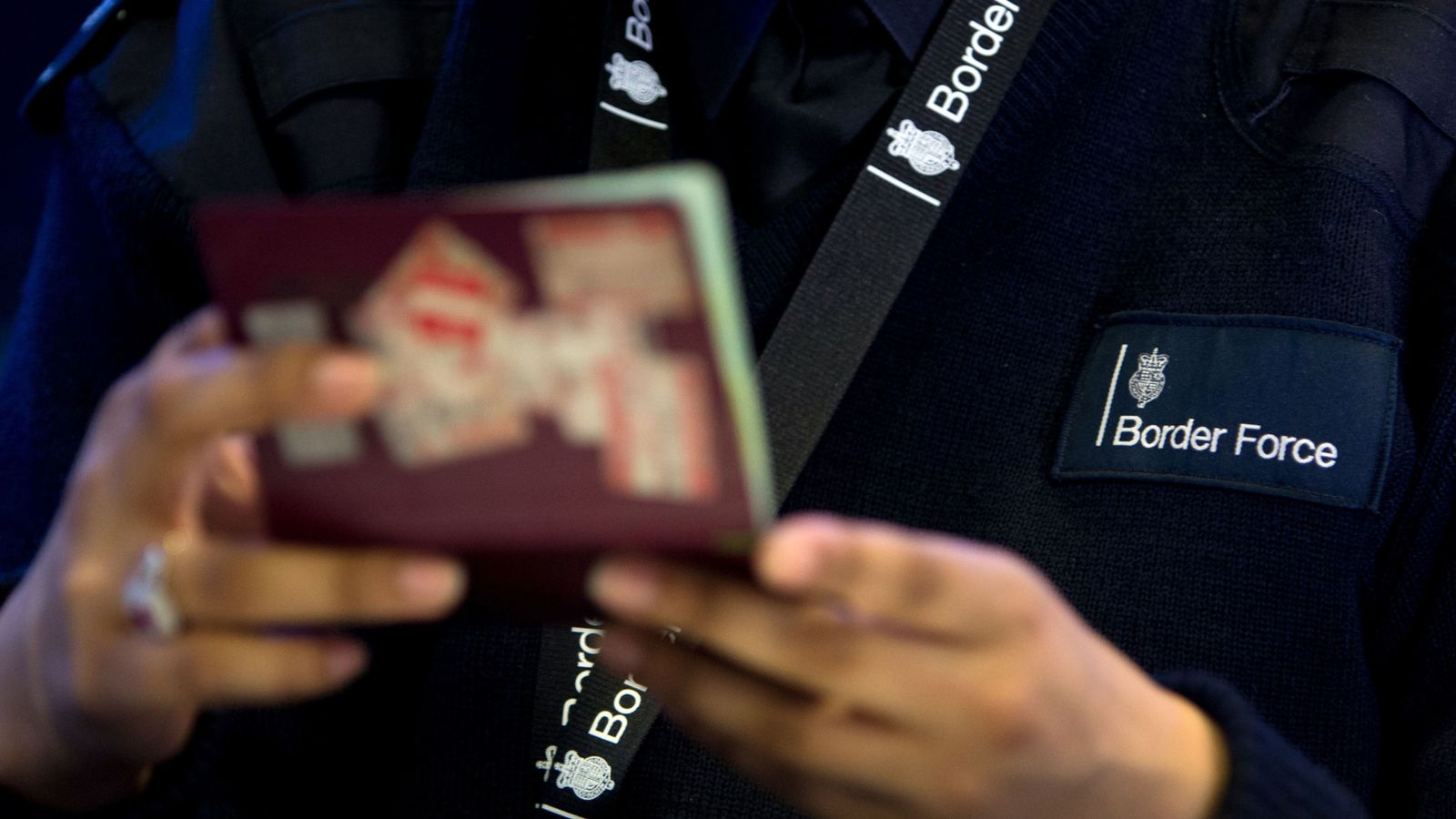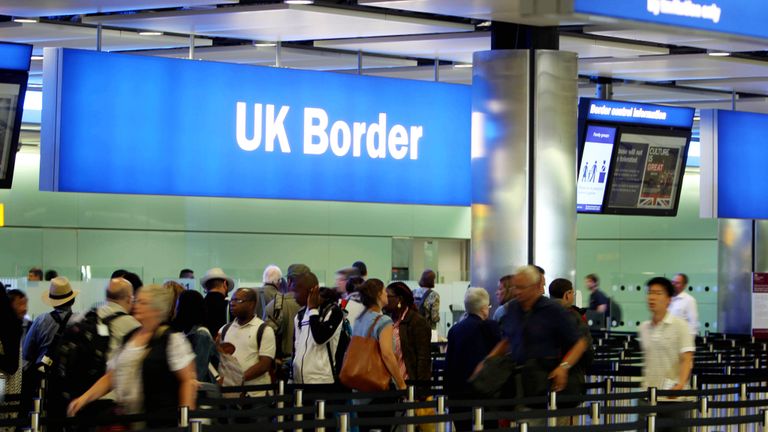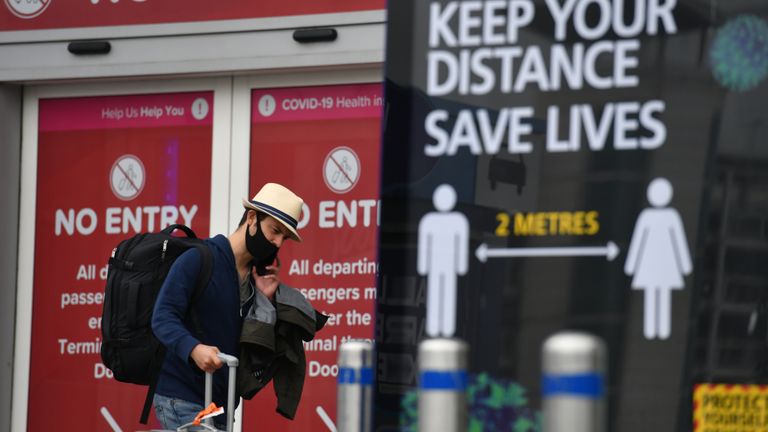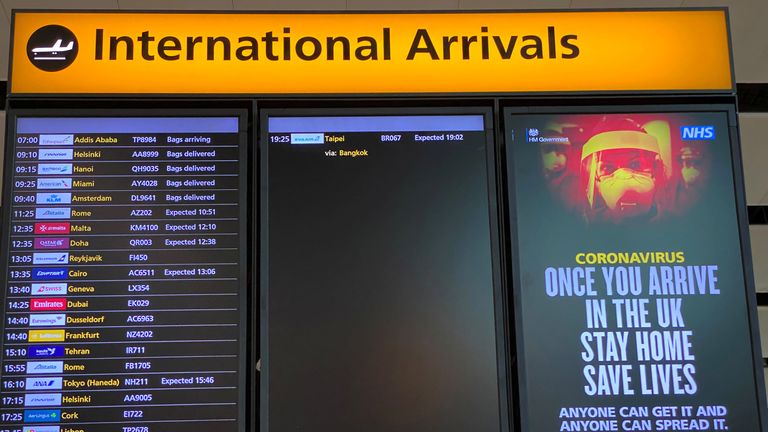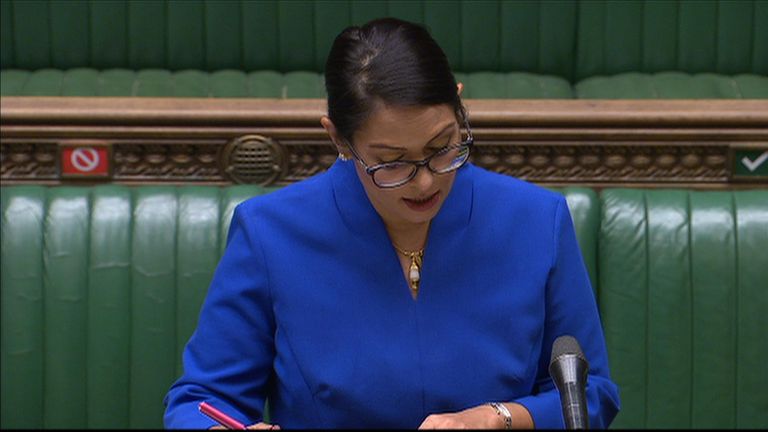Ministers let up to 10,000 travellers with coronavirus spread it across the country at the start of the pandemic by failing to bring in quarantine rules early enough, senior MPs have said.
The government was accused of making “critical errors” over how it treated those arriving in the UK in March, leading to COVID-19 taking hold faster.
Failing to catch “imported infection” then left the country with a “far worse” experience of the disease, the cross-party Commons home affairs select committee found.
So far coronavirus has killed 46,299 people in the UK, and the ONS found recently England suffered the highest levels of excess deaths of any country in Europe over the first half of 2020.
The government said it has “followed the science” and that once sustained community transmission began, more border measures would have had “a very marginal impact on the epidemic within the UK”.
But Yvette Cooper, a Labour MP and chair of the committee behind a new report, claimed it was a “grave error” to have no quarantine policy in mid-March.
“The UK was almost unique in having no border checks or quarantine arrangements at that time,” she said on Wednesday.
“That alone should have rung loud alarm bells for ministers and made them think again.
“Many times ministers told us they were following the science.
“But we cannot find any science at all behind their completely inexplicable decision to lift all the self-isolation guidance for travellers on March 13 – a full 10 days before lockdown – just at a time when other countries were introducing stronger border measures.
“We were told that thousands more people with COVID-19 came back to the UK after that guidance was lifted.
“So in the middle of March, at a time when the number of people with COVID coming back into the UK was at its peak, they were going back to work or onto public transport or seeing family without any quarantine in place.”
The government’s failure to provide the scientific advice behind its decisions – despite repeated requests and promises to do so – was “completely unacceptable”, the committee said.
“A large number of instances of the virus – up to 1,356 importation strains and up to 10,000 cases – were imported during the period leading up to, and following, the abandonment of special measures for international arrivals on 13 March,” it added.
Several recommendations were made, including for ministers to investigate carrying out testing at the border – like Iceland, Hong Kong and South Korea.
And the government was also urged to publish a traffic light system to show rates of virus prevalence for different countries.
A government spokesperson said in response that the committee was “incorrect in their assertions”.
They continued: “All of our decisions throughout the pandemic have been guided by the science, with appropriate measures introduced at the right time to keep us all safe.
“And with passenger numbers significantly reduced, the scientific advice was clear that quarantine measures for those entering the country from abroad would be most effective when the UK has a lower level of infection.
“Therefore, as the virus was brought under control here, border measures were introduced on June 8 to protect public health and help avoid a second peak that would overwhelm the NHS.”
They also pointed out to national “stay at home” orders applying to everyone, meaning there did not need to be an explicit policy just for travellers arriving in the UK.
Quarantine measures were brought in on 8 June for travellers from all countries – meaning anyone arriving in the UK had to self-isolate for 14 days.
A group of several dozen countries were then exempted for being deemed low risk – but one of them, Spain, has now been re-added to the list given a growth of cases in some regions.
The government has said it will take swift action to add other countries to the list, and Prime Minister Boris Johnson has warned there are signs of a second wave beginning to build in Europe.
